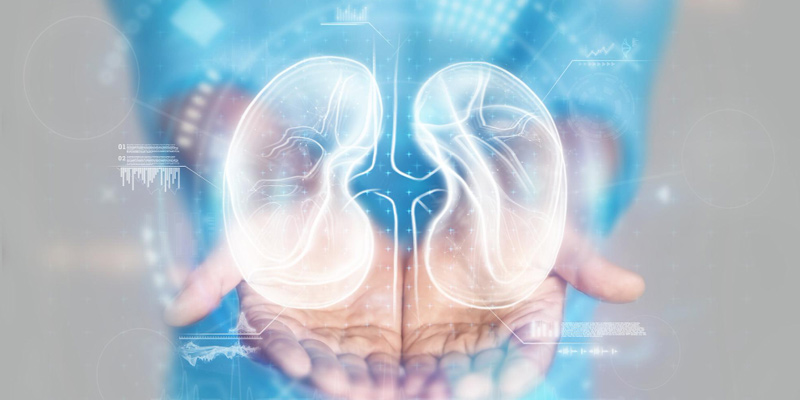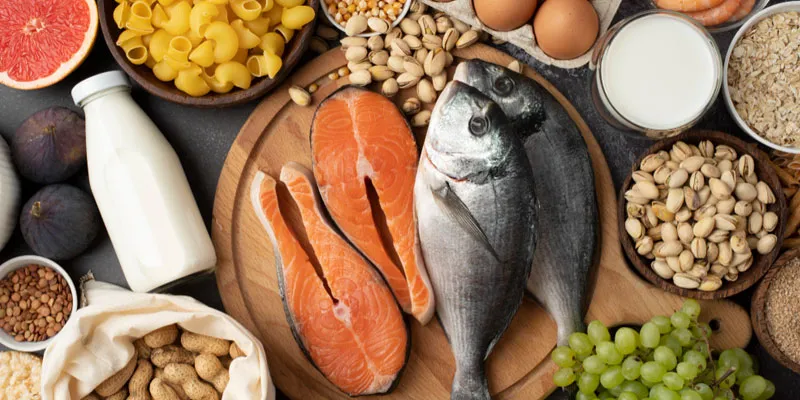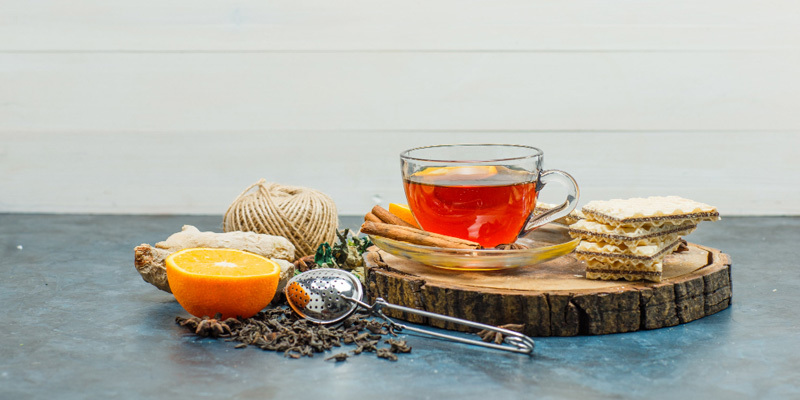If you want to maintain good kidney health, keeping your creatinine levels in check is essential. Creatinine, a waste product generated by the muscles and eliminated by the kidneys, can indicate impaired kidney function when present at elevated levels. While medical treatment is necessary in severe cases, there are several natural remedies that can complement medical interventions and help reduce creatinine levels. In this article, we will explore some effective home remedies to reduce creatinine levels.
Understanding Creatinine
Creatinine is a waste product formed by the natural breakdown of creatine, a compound that helps muscles produce energy. It enters your bloodstream after muscle use and is filtered out by your kidneys, exiting the body through urine. While it’s a normal process, its levels in the blood can provide insights into kidney health.
Normal Creatinine Levels
Creatinine, a waste filtered by the kidneys, builds up in the blood if kidneys aren’t functioning well. Normal ranges are:
- Men: 0.74–1.35 mg/dL
- Women: 0.59–1.04 mg/dL
- Children: 0.3–0.7 mg/dL
Factors Affecting Normal Creatinine Levels
Creatinine levels can vary based on:
- Age: Kidney function naturally declines with age.
- Gender: Men usually have higher levels due to more muscle mass.
- Body Size: Larger individuals may have higher creatinine levels.
- Muscle Mass: More muscle mass leads to higher creatinine production.
- Race/Ethnicity: Genetic factors can influence baseline levels.
Symptoms of High Creatinine Levels
- Changes in urination (dark, decreased, or foamy urine).
- Swelling in legs, feet, or face (edema).
- Fatigue and weakness due to toxin buildup (uremia).
- Nausea and vomiting from toxin irritation in the digestive system.
- Shortness of breath caused by fluid retention.
- Muscle cramps or pain due to electrolyte imbalances.
- High blood pressure linked to kidney dysfunction.
Causes of High Creatinine Levels
- Kidney Dysfunction or Disease: Chronic kidney disease (CKD), acute kidney injury, glomerulonephritis, or polycystic kidney disease.
- Dehydration: Insufficient water intake concentrates creatinine in the blood.
- High Protein Intake: Excessive red meat or protein supplements increase creatinine production.
- Certain Medications: NSAIDs, antibiotics, or chemotherapy drugs can impact kidney filtration.
- Intense Physical Activity: Overexertion boosts muscle metabolism and creatinine production.
- Underlying Health Conditions: Diabetes, high blood pressure, and heart failure affect kidney function.
The Importance of Lowering Creatinine Levels

Lowering creatinine levels is crucial for maintaining optimal kidney health. Here’s why it’s important:
- Preventing Further Kidney Damage: High levels of creatinine can be a sign of kidney damage or disease. By reducing levels, you can prevent further damage to the kidneys and potentially halt the progression of kidney-related issues.
- Improving Kidney Function: Lowering the levels can help improve kidney function by reducing the workload on the kidneys. This can contribute to better overall kidney health and prevent complications associated with impaired renal function.
- Managing Underlying Health Conditions: Elevated creatinine levels can be indicative of underlying health conditions, such as chronic kidney disease or diabetes. By reducing the levels, you can better manage these conditions and minimize their impact on kidney function.
- Preventing Kidney Failure: Persistent high levels of creatinine can increase the risk of kidney failure. By taking steps to lower levels, you can reduce the likelihood of reaching a critical stage where kidney function is severely compromised.
- Enhancing Overall Health: The kidneys play a vital role in maintaining overall health by filtering waste products and maintaining a proper balance of fluids and electrolytes in the body. Lowering creatinine levels supports the kidneys’ ability to perform these essential functions, contributing to improved overall health.
12 Powerful Home Remedies to Reduce Creatinine
Now, let’s explore 12 effective home remedies to reduce creatinine levels naturally:
Stay Hydrated

Drinking an adequate amount of water is essential in maintaining kidney health and reducing creatinine levels. Staying hydrated helps in flushing out toxins and waste products from the body. Aim to drink at least 8-10 glasses of water per day to ensure proper hydration and promote healthy kidney function.
Watch Your Sodium Intake
Excessive intake of sodium can contribute to high blood pressure and kidney damage. It is important to limit your sodium intake to reduce the levels. Avoid processed and packaged foods that are high in sodium. Instead, opt for fresh fruits and vegetables that are naturally low in sodium.
Consume a Kidney-Friendly Fibre Rich Diet

A kidney-friendly diet can help lower creatinine levels and support kidney health. Include foods that are low in protein and potassium while being rich in fibre and antioxidants. Some examples include leafy greens, berries, cauliflower, apples, and fish. Consult with a nutritionist or healthcare professional for personalized dietary recommendations.
10 Best Fruits to Lower Creatinine Levels
Incorporating the right fruits into your diet can help support kidney function and overall health.
- Apples: High in fibre and vitamin C, apples help support kidney health and overall wellness.
- Berries (Blueberries, Strawberries, Raspberries): Packed with antioxidants that protect kidneys and reduce inflammation.
- Grapes: Low in potassium and rich in antioxidants, grapes help maintain kidney function.
- Pineapple: A low-potassium fruit that aids in detoxification and supports kidney health with its high vitamin C content.
- Papaya: Contains antioxidants and vitamin C to reduce kidney inflammation and improve function.
- Watermelon: High water content helps flush out toxins and supports hydration, promoting kidney health.
- Oranges: Packed with vitamin C and antioxidants, oranges help reduce inflammation in the kidneys.
- Cranberries: Known for promoting urinary tract health, they also help support kidney health and prevent infections.
- Pears: Low in potassium, pears support kidney function and improve digestion.
- Plums: These fruits are rich in antioxidants and help promote detoxification and kidney health.
10 Best Vegetables to Lower Creatinine Levels
Certain vegetables provide essential nutrients that help support kidney health and overall well-being.
- Cauliflower: A low-potassium vegetable high in fibre and antioxidants, supporting kidney health and overall wellness.
- Bell Peppers: Rich in vitamins A and C, bell peppers are low in potassium and beneficial for kidney function.
- Cucumbers: High water content helps flush out toxins, keeping the kidneys hydrated and functioning optimally.
- Zucchini: Low in potassium and a good source of vitamins A and C, zucchini supports kidney health.
- Carrots: Low in potassium and high in fibre, carrots help improve digestion and support kidney health.
- Spinach (in moderation): Nutrient-rich but high in potassium, so consume in moderation for kidney support.
- Asparagus: Contains antioxidants and is low in potassium, making it a good choice for kidney health.
- Sweet Potatoes: A kidney-friendly alternative to regular potatoes, rich in vitamins and fiber while being lower in potassium.
- Broccoli: Rich in vitamins C and K, fibre, and antioxidants, it helps reduce inflammation and supports kidney health.
- Lettuce (Romaine): A low-potassium leafy green that’s easy to include in meals to support kidney function.
These fruits and vegetables can play an essential role in supporting kidney health and managing creatinine levels. Always consult a healthcare provider for personalized guidance.
Herbal Teas and Natural Detoxifiers

Certain herbal teas and natural detoxifiers can aid in reducing creatinine levels. Dandelion root tea, nettle leaf tea, and green tea have diuretic properties that can help increase urine output and facilitate the elimination of waste products. Enjoy these teas regularly as part of your daily routine.
Limit Protein Consumption
While protein is essential for our overall health, excessive protein intake can put a strain on the kidneys. When protein is metabolized, it produces waste products, including creatinine. Limit your consumption of high-protein foods such as red meat and opt for lean protein sources like chicken, fish, and legumes.
Incorporate Omega-3 Fatty Acids
Omega-3 fatty acids have anti-inflammatory properties and can benefit kidney health. Include foods rich in omega-3 fatty acids, such as fatty fish (salmon, mackerel), chia seeds, flaxseeds, and walnuts, in your diet. These foods can help reduce inflammation in the kidneys and lower creatinine levels.
Avoid Alcohol and Smoking
Excessive alcohol consumption and smoking can have a detrimental effect on kidney function. Both substances can increase blood pressure and damage the blood vessels in the kidneys. It is important to avoid alcohol and quit smoking To reduce creatinine levels. Opt for healthier alternatives and seek support if needed.
Exercise Regularly
Regular exercise is beneficial for overall health, including kidney health. Engaging in physical activity improves blood circulation and promotes the elimination of waste products through sweating. Incorporate moderate-intensity exercises like walking, jogging, or cycling into your daily routine to support kidney function and lower creatinine levels.
Manage Stress Levels
Chronic stress can have a negative impact on our overall health, including kidney function. Find healthy ways to manage stress, such as practising meditation, deep breathing exercises, or engaging in hobbies that help you relax. By reducing stress, you can support kidney health and lower creatinine levels.
Get Quality Sleep
Adequate sleep is essential for our overall well-being, including kidney health. During sleep, our body undergoes important restorative processes, including the elimination of toxins and waste products. Aim for 7-8 hours of quality sleep each night to support healthy kidney function and reduce creatinine levels.
Avoid Over-the-Counter Medications
Some over-the-counter medications, such as nonsteroidal anti-inflammatory drugs (NSAIDs), can be harmful to the kidneys and elevate creatinine levels. Avoid excessive use of these medications unless prescribed by a healthcare professional. Consult your doctor for safer alternatives or appropriate dosage.
Consult Your Doctor
It is important to consult with a healthcare professional or nephrologist for proper diagnosis, monitoring, and guidance. They can assess your specific condition and provide personalized recommendations tailored to your needs. Your doctor will determine the underlying cause of elevated levels and develop a comprehensive treatment plan.
Conclusion
Reducing creatinine levels is possible by adopting a healthy lifestyle and incorporating these home remedies. Stay hydrated, watch your sodium intake, consume a kidney-friendly diet, incorporate herbal teas and natural detoxifiers, limit protein consumption, include omega-3 fatty acids, avoid alcohol and smoking, exercise regularly, manage stress levels, get quality sleep, avoid over-the-counter medications, and consult your doctor for professional guidance. By implementing these natural solutions, you can support kidney health and work towards reducing creatinine levels.
FAQs
Yes, Home remedies can effectively reduce creatinine levels naturally. However, it is important to consult with a healthcare professional for proper guidance and monitoring.
The time taken to see a decrease in levels varies from person to person. Consistently following a healthy lifestyle, including the recommended home remedies, can lead to gradual improvement over time.
It is advisable to limit sodium intake, avoid excessive protein consumption, and steer clear of alcohol and smoking. A kidney-friendly diet tailored to your specific needs can further aid in reducing levels.
Regular exercise improves blood circulation, promotes detoxification, and supports kidney function. Engaging in moderate-intensity activities can contribute to lowering levels. However, consult with your healthcare provider before starting any new exercise regimen.
If you have consistently high levels or suspect kidney-related issues, it is important to consult a healthcare professional or nephrologist. They can evaluate your condition, identify the underlying cause, and provide appropriate guidance and treatment options.